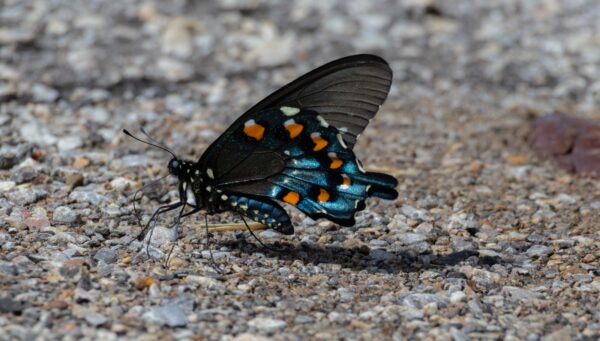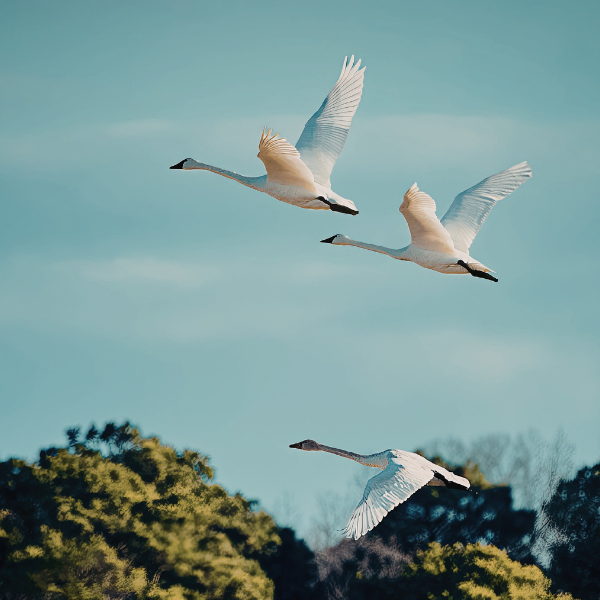I have come to recognize a deep despair that resides in the shadow part of myself, the shadow being of course those things about ourselves we don’t want to embrace. And yet the journey toward our own wholeness is precisely about naming our shadows, welcoming them into the inner rooms of our being, and listening for what they have to say to us.
Those of you who have been reading along here for a while know that I am engaging in some family systems work as a part of my spiritual journey. My father was someone who let despair consume him, his whole life he ran from his own darkness. In addition to whatever pain he experienced within his own family, his youth was layered against the backdrop of World War II, and the trauma and despair of that experience is something he never spoke of to me. I have found that resisting the despair only magnifies the weight of it.
In some ways, in saying these things, I feel like my paint is peeling, I am revealing the more difficult surfaces of my soul. I think part of my reluctance to share these struggles is my fear that others will try to step in to offer me hope as an antidote. I have an ambivalent relationship to the word “hope” — too often I think we use that term as a way of trying to circumvent the necessary process of facing our own dark emotions, we do violence to others by trying to move them to a place where we feel much more comfortable.
I am blessed with a spiritual director who does not ask me to cheer up or have hope. He asks me to walk right into the despair, to name the darkness and pain and suffering that weighs on me at times. He invites me to dwell there and imagine the pain my father struggled with so that I might cultivate more compassion and forgiveness for him.
I want to resist the despair, as many of us would. I sometimes spend a lot of energy doing precisely that. I don’t want to leap into the dark abyss where I must come to terms with the fact that this next moment could be my last, that those I love deeply will one day be gone, that we are waging a terrible war thousands of miles away whose trauma will ripple through generations to come, that we continue to wreak havoc on our planet and much of the damage is simply irreversible. When I contemplate the unimaginable horrors of the Holocaust I come to the conclusion that there is simply no consolation for that devastation. For some despair there simply is no tidy redemption offered in response, it simply is the horror that it is. Not that there weren’t stories of tremendous courage and love that rose from the ashes of that event, but the millions of crushed and broken bodies cannot be changed.
And yet, when I give myself space to walk right into that place of feeling utterly undone, of naming the things that give me reason for despair, I feel the crushing weight of sorrow and sometimes something quite remarkable happens. Sometimes when I am truly able to release my resistance to the places of darkness I am reminded of birdsong as Levertov writes, I come to treasure the simplest kindness, my heart begins to open in wonder at my own capacity for love.
These things do not outweigh the despair, as though the universe were some kind of cosmic scale. The despair and the beauty dwell together in the same space, not competing, but offering to us the full experience of soulfulness. Poetry and art help us to hold these in tension.
I come to realize that the opposite of despair for me is not hope, but precisely this experience of wonder. Wonder that there is anything at all, wonder that in the presence of great darkness there is also so much beauty, so much love.
As you read these words, I invite you to notice what stirs in you. Do you want to rush and reassure me that everything will indeed be alright? Do you want to say that the beauty of the world really does outweigh the darkness in some sort of ultimate battle?
Or can you rest here in this space with me, holding the profound paradox of the world as best as you can. Can you join me in making room within you for the full spectrum of the emotional landscape we contain within us, responding to the call to be fully present to this wondrous and despairing moment?
(photos: above taken over the Hood Canal, below taken at a sheep farm in Arlington, WA)
-Christine Valters Paintner @ Abbey of the Arts.



24 Responses
“As you read these words, I invite you to notice what stirs in you. Do you want to rush and reassure me that everything will indeed be alright?”
What stirred in me as i read your words, Christine, was identification and understanding and compassion and thanksgiving. These are your words expressing your interior … your thoughts …your feelings. No, i did not experience a rush to reassure. The only rush present for me was the one to lean in closer to listen … to really, really listen.
dear friend, i too choose to rest in this space of deep paradox with you. i could feel your strength and tenderness throughout the entire post. blessings!
I am really moved by the response to this post. Thank you Cathleen and Val for showing up here.
I am brought to tears in the realization of the moment of the now – of that which was me, is me, and will always be.
resting with you in the paradox…and grateful for your words and stirrings
blisschick, it does indeed sound like we are speaking of the same thing. :-) I also love the map and territory image and the need to walk our own path, do our own work. thanks too for sharing of your own journey through the dark woods, I understand completely about not wanting to go back. On my own journey I discover I am called back many times and now am trying to articulate the gifts that might rise up when we stop resisting the despair. Thanks for engaging me with this, it will definitely shape my next post.
Thanks so much Mavis, I am totally there with you about Good Friday! It always feels somehow shortchanged to some degree because we know the ending of the story. I may have to go back and watch “4 weddings” because I don’t remember that scene, but love the image you share. And Icarus is a stunning addition to the conversation as well.
Yes yes yes. This is such a good and helpful post. I am a both/and gal. I find at Easter that the Good Friday liturgy is sometimes internally mitigated by reference to the coming resurrection Sunday. For me it is important to enter fully into the Friday and Saturday and not to say _ it’s alright – Sunday is coming. When my dad died, suddenly and unexpectedly while he was on holiday with us, one of the words I remember most fully came from a friend who pointed me to the scene in ‘Four weddings and a funeral’ where the bereaved lover calls for the clocks to stop. And Auden’s Icarus is one I often come back to – on both sides – how suffering goes on unnoticed – and how I don’t notice what is happening around me:
About suffering they were never wrong,
The Old Masters: how well they understood
Its human position; how it takes place
While someone else is eating or opening a window or just walking dully along;
How, when the aged are reverently, passionately waiting
For the miraculous birth, there always must be
Children who did not specially want it to happen, skating
On a pond at the edge of the wood:
They never forgot
That even the dreadful martyrdom must run its course
Anyhow in a corner, some untidy spot
Where the dogs go on with their doggy life and the torturer’s horse
Scratches its innocent behind on a tree.
In Brueghel’s Icarus, for instance: how everything turns away
Quite leisurely from the disaster; the plowman may
Have heard the splash, the forsaken cry,
But for him it was not an important failure; the sun shone
As it had to on the white legs disappearing into the green
Water; and the expensive delicate ship that must have seen
Something amazing, a boy falling out of the sky,
Had somewhere to get to and sailed calmly on.
No, we are soooo talking about the same thing. I took a long time to clarify with that last comment — an inherent danger in blogging, I find, is misunderstanding (oh, duh! that would be with any type of communication). Anyway, I started down this whole path of “map and territory” talk and the importance of earning through hard work the “having arrived” at this witness (to use your terminology!), and I deleted it — afraid I was just going off and babbling! :) I love that image of “landscape of formation.” Beautiful. And it demonstrates the physicality (metaphorically and literally) of having to walk a path — and not just being handed answers (thus my own mistrust of the whole Guru transference method). My own path has been through many thorny and deep, dark woods, and turning 40 this year and feeling like I am finally, finally, finally out of them, I know I have no desire to return to those woods — thus my reaction to the word “despair.”
Bette, thanks for chiming in and resonating with the image. I like the way you describe the image.
blisschick, thanks for coming back and clarifying. I can see this is going to be a fruitful conversation. I would agree as well that we have a place within us as you describe — ground of luminosity is beautiful — and I will write more on Wednesday about the image I use which is of an inner witness, the place within us that can observe emotion and learn from it without being carried away or choked by it. Part of what I was trying to get to in my post, and I hope to develop a bit more, is that when we resist the emotion it ends up having a great deal of hold on us. Learning to walk into the despair, grief, anger, or any emotion and welcoming it in without anxiety, witnessing it from the still place within, we begin to discover the hidden gifts there and the healing that is possible. I don’t think we can get to the still place without taking our emotional life seriously as a landscape of formation. Not sure if we are still talking about the same thing, but I appreciate the dialogue!
christine, Oh, no, I totally agree with you about the mutual compatibility of seemingly disparate emotions and experiences. We are complex spiritual beings, of course. :) I just believe — and I have to believe this — that somewhere, very deep within us, lies that still point (or “virgin point” that Merton calls it or the “ground luminosity” of buddhism) — a point that emotion, which is temporary regardless of how awful or wonderful, does not touch, does not affect. A point where all the illusion disappears. A point where there is no more paradox. I believe that we are born to get there right now.